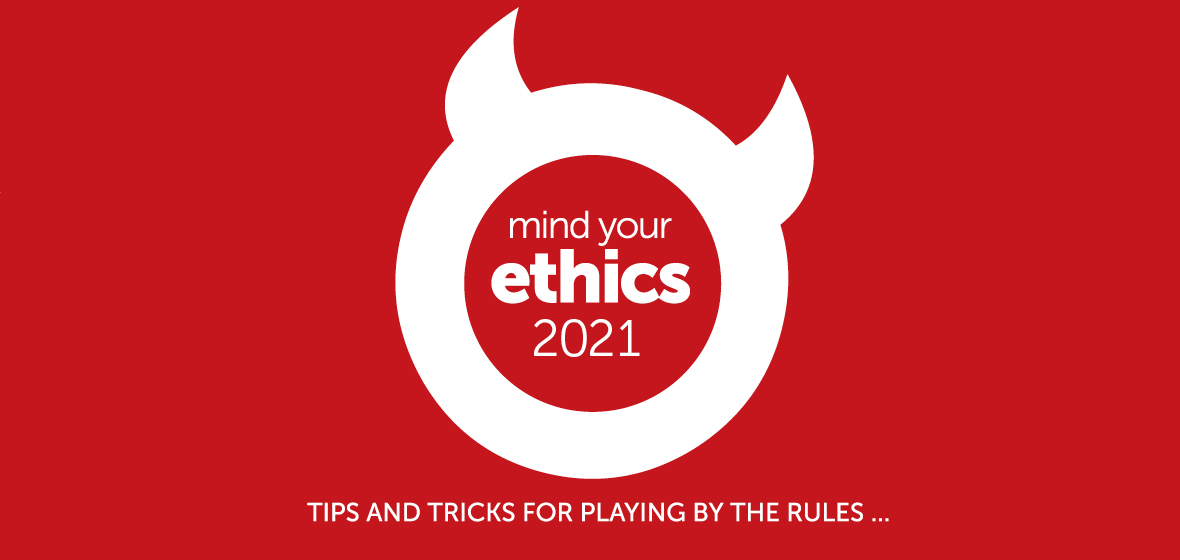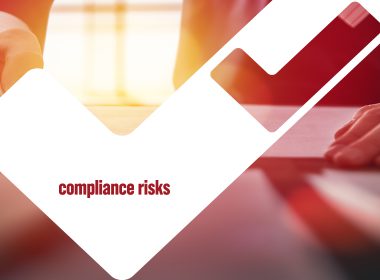Q: What are the ethics behind “Let’s kill all the lawyers”?
By Linden Barnes, Senior Ethics Lawyer
LSJ Issue 74, February 2021
A: We certainly can question the ethics of anyone who throws that quote at us, aiming to hurt. However, I suspect that most people who bandy it around are unaware of its context – that it is said by someone of questionable character advocating the overthrow of institutions does put a rather different spin on it.
And how does this relate to our daily professional ethics? Well, first, Shakespeare arguably was defending our profession, not undermining it. More prosaically, it shows how misleading a statement can be, which is a constant ethical dilemma put to me by callers to the ethics line.
How often, when we reconsider what we have put forward on behalf of our client, do we wonder whether we said enough. Is what we said misleading without more? We might understand what we meant, but will the recipient do likewise?
It is vital to consider the circumstances of the recipient. Are they a busy judge only given a snapshot of the matter? Are they a self-represented litigant who does not understand legal terms? Are they a colleague who, like us, is trained to interpret communications cautiously?
My rule of thumb is as follows:
- if you are worried
- if you have rung the ethics line
- if you are lying awake at night
- it probably is misleading.
Correct it and regain your sleep – “Nature’s soft nurse”, as the Bard rightly called it.
Back to top
Q: Who is the April Fool of a client?
By Linden Barnes, Senior Ethics Lawyer
LSJ Issue 76, April 2021
A: Ourselves. That’s right. The saying goes that if we act for ourselves, we have a fool for a client and also a fool for a solicitor.
Quick checklist:
- I didn’t do the conveyancing when I bought my home.
- I didn’t draft my will (or I don’t actually have one – like doctors who die before their own eyes, we solicitors often never get around to having a will).
- I had a fantastic solicitor who sorted out my family law situation.
- I promised to provide documents to the solicitors for the other side.
If we ticked yes to all of the above, we should go back and look at number 4. It is an undertaking. It is likely to land us in a conflict between our obligations to the undertaking and our obligations to our client. To avoid that, did we give ourselves good advice on tailoring the terms so we could meet all our obligations? Perhaps putting in some element of best endeavours or reasonableness? We would advise a client to do that, so why not ourselves?
This is where the fool part takes over. We fail to give ourselves good advice. We have, in effect, inadvertently acted for ourselves and not given ourselves the benefit of independent advice. Moreover, that good advice would actually start not with the terms of the undertaking but whether it should be our client giving the undertaking instead. The matter is theirs so the undertaking should be theirs. And while we are advising them on the undertaking, contemplate whether we would have given ourselves the same advice we are giving them. Probably not.
So, don’t be the April Fool and don’t act for one.
PS It has been lovely to be able to meet with so many of you in the real over this last CPD season. May that continue.
Back to top
I didn’t quite catch your name … who are you? The problem with identification.
By Paul Monaghan, Senior Ethics Lawyer
LSJ Issue 77, May 2021
For some lawyers, their very presence brings immediate recognition, fawning attention heaped upon them and many hushed conversations between onlookers, discussing the greatness that now graces the assembled throng of fellow members of the legal profession.
However, this may not occur for all solicitors. The large and everchanging profession makes the personal identification of a solicitor a far more difficult task than in the past, and this has several unwanted consequences. The difficult nature of forming an immediate professional rapport with another solicitor, the need to ensure courteous communications, maintaining every opportunity to avoid disputes, and to expedite resolving disputes, becomes ever more difficult.
There are professional obligations upon every solicitor when communicating, and the required level of identification. These obligations may be summarised by reference to and compliance with the solicitors’ practice rule 8, where in the conduct of legal practice “… a solicitor must cause the firm or business name of the solicitor or firm … to be mentioned in legible characters on all communications written in the course of legal practice by the solicitor.”
However, this may not be enough to solve the emerging problems of identification amongst a growing legal population and the increasing incidence of cyber fraud. The use of computer-based communications, online financial transactions, property settlements and dealing with imposters pose a burden upon the solicitor to maintain the integrity of legal practice. This is becoming manifest in the number of attempts at fraud, scam directions and ‘dodgy’ instructions occurring late on a Friday afternoon. When in doubt, confirm identification of the solicitor you may dealing with and confirm instructions from clients by several means.
Q: Everyone else is being a little unethical, so that makes it okay?
By Linden Barnes, Senior Ethics Lawyer
LSJ Issue 78, June 2021
A: I am sure we have all come across this defence, maybe when a client is seeking advice or when we are trying to work out what to do in terms of our professional ethical obligations.
I want to give this defence an official title: the sheep defence. With that title, should our unofficial response to it be “Baaaa”? Because how valid is it as a defence for either a client or for us? It is not.
In fact, the Conduct Rules not only do not contemplate such a defence, they positively go the other way. They apply personal responsibility to each of us for our ethical obligations. No one of us is too junior, too inexperienced, too part of the crowd to be freed from that responsibility.
Yet it can be daunting to be the ethical leader, to stand out from the mob of sheep. This is particularly so when the “everyone else” includes colleagues who are senior to us in experience or hierarchy. How do we lead those who should be leading us?
Here I might do a little cross-promotion (is that unethical for an ethics solicitor to do?) for the articles in this LSJ on leadership. Have a read of them to gather some useful leadership tips on how you can lead where it is not easy to do so.
And here are my top three ethical reasons to be an ethical leader:
- We must not breach our own personal professional obligations.
- We must be leaders and help our colleagues not to breach their obligations. This is not just a matter of collegiality (see s 39 of the Legal Profession Uniform Law).
- We will sleep better at night as a result. Can I resist mentioning that we will then not need to count sheep … ?
Back to top
The role of lawyers throughout history, from the Dreamtime to the present
By Paul Monaghan, Senior Ethics Lawyer
LSJ Issue 79, July 2021
People often ask what makes lawyers different from other people and why they are so special. What is that essential ingredient that will separate the few from the many and identify the noble lawyer?
Every society, from the ancient to the modern, has had those who have upheld the principles and ethical standards required to sustain a society.
Comparisons of societies around the world have displayed the presence of a legal profession (or equivalent) that has a membership with a unifying thread of ethics and professional standards.
In today’s global economy, the union of ethics and sustainability is becoming another part of that unifying thread that will require a legal profession to be agile and receptive to change, in order to address the challenge of advising our clients on all matters affecting our world and to “provide clear and timely advice to assist a client to understand relevant legal issues … and informed choices during a matter…” (Rule 7).
Arising from these professional obligations, future legal discussions in Australia will require the inclusion of clear and timely advice on the claims for “greater management, involvement, and empowerment by Indigenous peoples over country.”
These are topics that will be necessary for the lawyer to include in legal advice to properly “… allow every client to understand relevant legal issues … and to make informed choices about action to be taken during the course of a matter …”.
Changing circumstance illustrates the nature of what makes a lawyer so different. It is that they are well placed to manage this change, to be “a client’s trusted adviser and representative, as a professional respected by third parties and as an indispensable participant … to forestall and prevent conflicts and ensure conflicts are resolved …”.
This special role of lawyers from the past and now into the future provides hope and confidence in securing an enduring, just and ethical society.
Back to top
What do the different jerseys mean in the Tour de Solicitors?
By Linden Barnes, Senior Ethics Lawyer
LSJ Issue 80, August 2021
For those of us who were able, last month, to juggle watching the Tour de France while enjoying the Barty Party to while away lockdown hours, here is the ethical guide to the cycling jerseys that we solicitors might win.
Yellow Jersey The solicitor we all want to be, standing on the podium of respect under the Arc de Triomphe. We are courteous to all. We do not take advantage when a colleague falls off their bike. We do not need a repair kit for our promises. The administration of justice is safe in our hands.
Green Jersey typically won by sprinters. In our Tour, that would be the efficient solicitor who doesn’t waste anyone’s time, particularly not the court’s.
Polka Dot Jersey The king of the mountains. Think of those massive mountains in the Pyrenees and the struggle of the riders to get to the top. We win this award when we struggle through the different client gradients, all of them steep, and come out ethically unscathed.
Most combative Combativity might be acceptable in sport, but it is not acceptable for solicitors. This is the solicitor who is discourteous, who does not stand apart from their client’s emotional state but rather becomes party to it. They communicate with our client and they threaten to report us. Not the prize to win.
The Tour de Solicitors is gruelling, but the scenery of those mountains and coastlines and chateaux is magnificent. Our prize is more enduring than any paper Certificate of Title.
Your commentators here at the Ethics Department wish you a good ride in these difficult times.
Back to top
When errors occur – ‘to err is human … to forgive is to be a lawyer’
By Paul Monaghan, Senior Ethics Lawyer
LSJ Issue 81, September 2021
Recent history has delivered to every solicitor new and challenging circumstance, which have adversely impacted on them in their noble pursuit of the practice of law.
Members of the profession are trained to deal with events from the everyday to the worst crisis, with the same forensic skill and the capacity to innovate that mark the profession during more familiar times.
However, very few practitioners would have studied law that would describe the circumstances of the past year and lay an established precedent to follow in dealing with such matters.
Errors and mistakes may occur when the legal profession is subjected to circumstance that may be confusing and ambiguous. It is at times like these that public disorder and the questioning of law often arise as unpopular opinion or fervent dislike toward the operation of the law occurs.
However, lawyers are well versed in “what can go wrong” and what must be done to cure a problem. Under these trying circumstance, we are reminded of our professional obligations when dealing with another solicitor or other person’s error.
Practising law is filled with errors and it is important to recall that “…a solicitor must not take unfair advantage of the obvious error of another solicitor or other person … if to do so would obtain for a client a benefit which has no supportable foundation in law or fact …”.
This principle is often read in conjunction with another fundamental duty as to always be “… honest and courteous in all dealings in the course of legal practice …”.
When we are confronted with difficult and hostile circumstance, we find our professional standards provide a means of resolving errors … “to err is human … to forgive is to be a lawyer …”.
Again, this highlights the special role of lawyers and their professional standards contributing to a just and ethical society.
Back to top
How do you bake the perfect ethical scone?
By Linden Barnes, Senior Ethics Lawyer
LSJ Issue 82, October 2021
According to the latest statistics, we are home baking again, with sales of flour and sugar doing well. So here is a recipe to try from the home office, particularly if your desk is also the kitchen bench.
Ingredients I am not going to wade into the controversies of lemonade and sugar. But I am going to emphasise the importance of making sure we are clear on who our client is. This is the most important ethical ingredient. If we don’t do this, then we cannot properly identify where our ethical obligations lie. We might not realise we have two clients with conflicting interests. We might disclose information in breach of confidentiality.
Instructions What is the light hand that beautifully combines the ingredients? It is what our client’s proper, lawful and competent instructions are (Rule 8). Rule 8 is so short but can be so difficult. How many times are we uncertain of the propriety of the instructions? At these times, remember what a good judge you are, from all your experience with clients. You know what doesn’t sit right.
Baking What is the ethical equivalent of the hot oven that scones love? To me, it is courtesy and honesty, collegiality in the maintenance of the administration of justice. If this is the oven in which we are baking, then our client’s matter will rise beautifully to ethical heights. Whereas if we are distracted, understandably, by rude communications that attack us personally, if we cannot rely on our colleagues doing what they undertake to do, then the matter doesn’t rise. And it is a complete power failure if we are not all uniformly upholding the administration of justice over all else. Happy baking!
Back to top
What do hybrid ethics look like in a hybrid world?
By Linden Barnes, Senior Ethics Lawyer
LSJ Issue 83, November 2021
Hybrid is another word to add to the list of words and phrases we have invented or adapted over the last 20 months. Think pivot, social (physical) distancing, self-isolation, Zooming and the resulting Zoom gloom, you’re on mute, burbing (cycling every road in the suburb) and pantry loading (panic buying). And we have hybrid meetings, hybrid work arrangements, hybrid lectures and hybrid court.
What happens to our ethics in these situations? I am going to use a Latin phrase which will probably generate a flurry of letters to the editor (apologies to Amy, our new editor). But as often with Latin phrases, it is succinct and is understandable without a Classics degree. Hybrid ethics are mutatis mutandis. The ethics are the same, with adaptations as adaptations are required (word count – Latin 2, English 6, and these days who doesn’t know what a mutation is).
To take a hybrid meeting for example, here are some thoughts on how adapt the same ethical rules to the real + virtual dynamic:
1. Company – everyone in the meeting needs to know who else is there, in line of sight too. It is like when we are on the phone and the other side of the conversation is on speaker. There is that sense of discourtesy about the unknown eavesdropper, not to mention potential confidentiality issues.
2. Networks – if there is a failure and virtual attendees drop out, we stop the meeting. We must not take unfair advantage of someone else’s “error” and we certainly cannot communicate with someone else’s client if it is their solicitor who has dropped out.
3. Optics – so much of ethics is about appearances, to buttress the reality, not to cover it up. We must ensure that the hybrid dynamics – who is in the real and who is virtual – do not create an appearance of unprofessional familiarity or, worse, bias.
Hybrid ethics – perfectly adaptable to a hybrid world.
For the pedants – mutatis mutandis < muto – ablative perfect participle passive plus ablative gerundive.
Back to top
Professional Ethics – the gift that keeps on giving
By Paul Monaghan, Senior Ethics Lawyer
LSJ Issue 84, December 2021
At the end of another testing and difficult year, we look forward to the pending New Year with hope and expectation of better times. As our minds turn to the summer embrace, the culminating happiness of the yuletide festivities, and the parade of legal rituals linked to attending dinners, parties and joyful association with our colleagues unfold, we also consider the giving of gifts and kind acknowledgements to those dear to us.
As our social calendar fills and we attend each auspicious occasion, ethics and professional standards should be very much part of our displayed conduct. The season of excessive merriment, and the opportunity to converse in a free and uninhibited manner, often leads to many disappointing examples of words and gestures being expressed contrary to our better judgment.
It is time to reflect and ponder on such conduct and remember that as lawyers we have developed standards of ethics that are the true gift we can bestow upon our professional colleagues and the community that endear us to the world.
We must take every opportunity to reflect upon our conduct rules and “…be honest and courteous in all dealings in the course of legal practice … and not engage in conduct, in the course of practice or otherwise, which demonstrates that the solicitor is not a fit and proper person to practise law … and in particular not engage in conduct which constitutes discrimination, sexual harassment, or workplace bullying”
When we look back on this year, the professional standards we have adhered to and our ethical conduct during the festive season is truly the gift we can give to others when we come into contact with them … it is truly shown that ethics is the gift that keeps on giving. The ethics department extends to our readers best wishes for Christmas and the New Year. For all you have endured in yet another very difficult year, a well done to you all.




